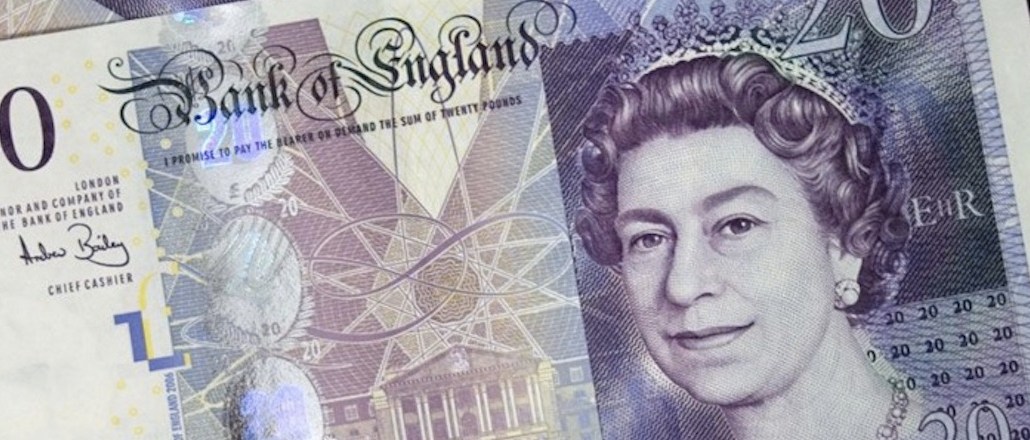Secure your place at the Digiday Media Buying Summit in Nashville, March 2-4
‘Sledgehammer to crack a nut’: Publishers respond to fallout from latest brand-safety bungle

Programmatic advertising has been back under the spotlight this last week, and uncomfortably so. The trigger this time: An article published by The Times last week, naming a bunch of brands whose ads had been found adjacent to videos filmed by Islamic extremists, on YouTube and other fake sites.
Nothing new, perhaps, but being thrust into mainstream view so plainly has sent brands scrambling for cover. Jaguar Land Rover and Thomson Reuters were among those to publicly distance themselves, pulling their digital advertising. Some agencies went as far as to block all digital advertising from running over the weekend. That extended to most of the major U.K. newspapers also seeing ads blocked on their sites.
Some news publishers just had video ads blocked, others were asked by their agencies to remove any ads that ran next to any articles that referred to the original article “Big brands fund terror through online adverts” — the latter part being fairly standard practice and one of the tougher parts about monetizing hard news. But some had a blanket block on ads across their entire properties for several days.
A couple of publishers said they felt unfairly penalized initially, though later their agencies reassured them it was a temporary measure. Others were cooler about the fact ads were blocked, adding that the approach taken was a symptom of knee-jerk panic. “[Agencies] just wanted to show quick and decisive action, and ended up using a sledgehammer to crack a nut, which they realised,” said one newspaper senior exec, who preferred to remain anonymous. “It was a panic reaction rather than punishment as the whole thing took everyone by surprise and blew up quickly,” added the same exec.
Others were more incredulous that the level of ad misplacement was any surprise for brands or agencies. “Clients are getting their fingers burnt because they have gone for scale over context, forgetting that not all inventory is the same. It’s their own fault. What happened shouldn’t be a surprise,” said a senior digital exec at a newspaper group.
If people bought context, fraudulent sites wouldn’t still benefit so much from masking URLs and creating spoof versions of legitimate news sites. “We can’t stop that. But it wouldn’t be an issue if people bought context,” added the same exec.
Naturally, some revenue was lost. But what was more of an issue was that the response to the crisis pointed to something far deeper. Several publishers said the broad-brushstroke response to block ads didn’t send the right message, and just re-emphasized that blacklists are deeply flawed: Common gripes are that they’re not updated sufficiently, there’s no common sharing of blacklists across publishers and agencies, and ad tech companies are failing to filter properly because it’s not in their interest to.
“The smoking gun is ad tech, not the brands nor the publishers,” said another senior exec at a major newspaper, who also spoke under condition of anonymity. “The issue in this story overall is the ad tech suppliers, who are just not working hard enough to prevent brands appearing in bad environments, because it’s not in their commercial interest. They could do more, they just choose not to,” said the same exec.
A lot of the built-in blacklists on some of the major platform networks are “not up to scratch,” publishers agree. “It’s not in their interest because a sold impression is a sold impression. Incentives are to shift volume,” one newspaper exec added.
For others, the response from brands and agencies, was just indicative of the now deep-rooted level of mistrust surrounding the programmatic advertising ecosystem.
“Brands are really starting to question what the value of their media is, why they spend hundreds of millions of pounds digital, a medium in which everything is deliverable, accountable and transparent,” said a national newspaper commercial exec who also preferred to stay anonymous.
“People skirt around the issue saying you can judge it by viewability and loose KPIs, but that’s just reassurance. If I went to Coke tomorrow and said give me £100,000 for digital media for the next six months, and they asked what they’d get in return, I couldn’t really tell them, and an agency couldn’t either. All this — the response to all this — is just a manifestation of the deep mistrust we have in the industry.”
More in Media

From feeds to streets: How mega influencer Haley Baylee is diversifying beyond platform algorithms
Kalil is partnering with LinkNYC to take her social media content into the real world and the streets of NYC.

‘A brand trip’: How the creator economy showed up at this year’s Super Bowl
Super Bowl 2026 had more on-the-ground brand activations and creator participation than ever, showcasing how it’s become a massive IRL moment for the creator economy.

Media Briefing: Turning scraped content into paid assets — Amazon and Microsoft build AI marketplaces
Amazon plans an AI content marketplace to join Microsoft’s efforts and pay publishers — but it relies on AI com stop scraping for free.








